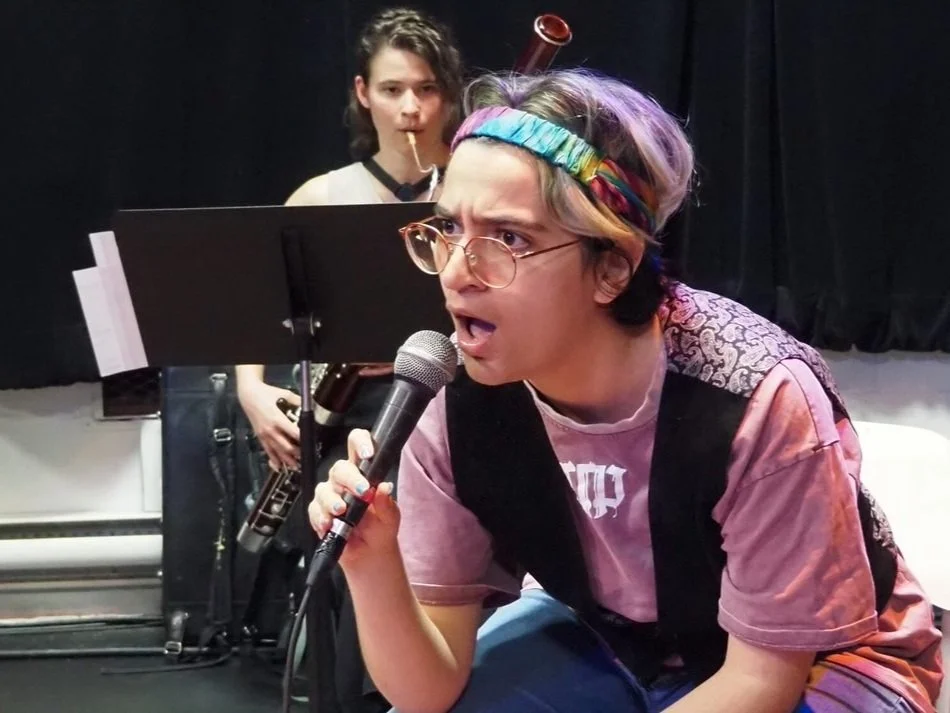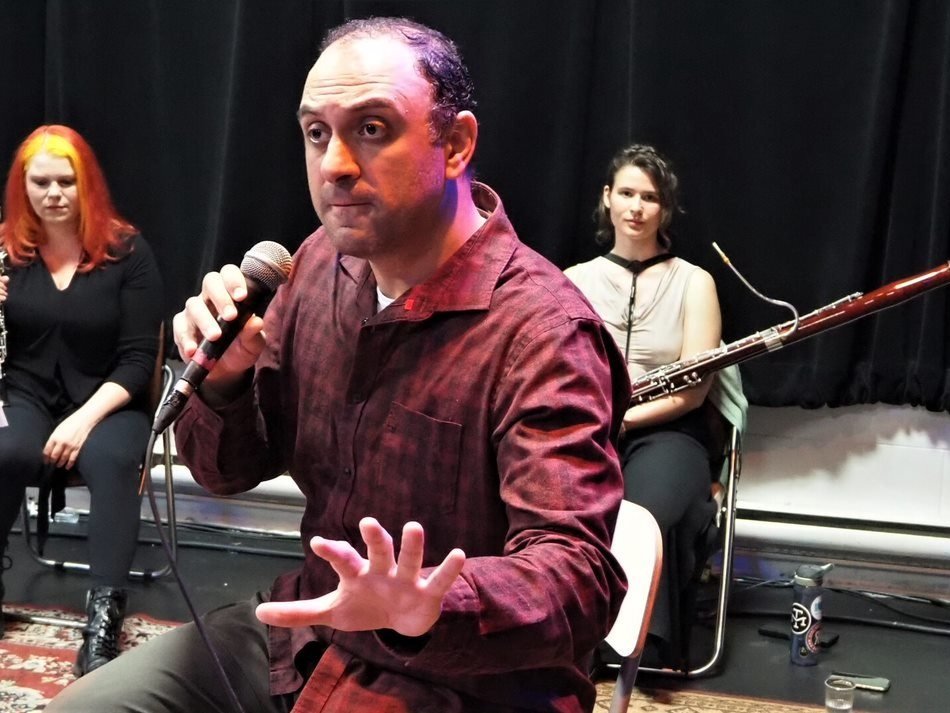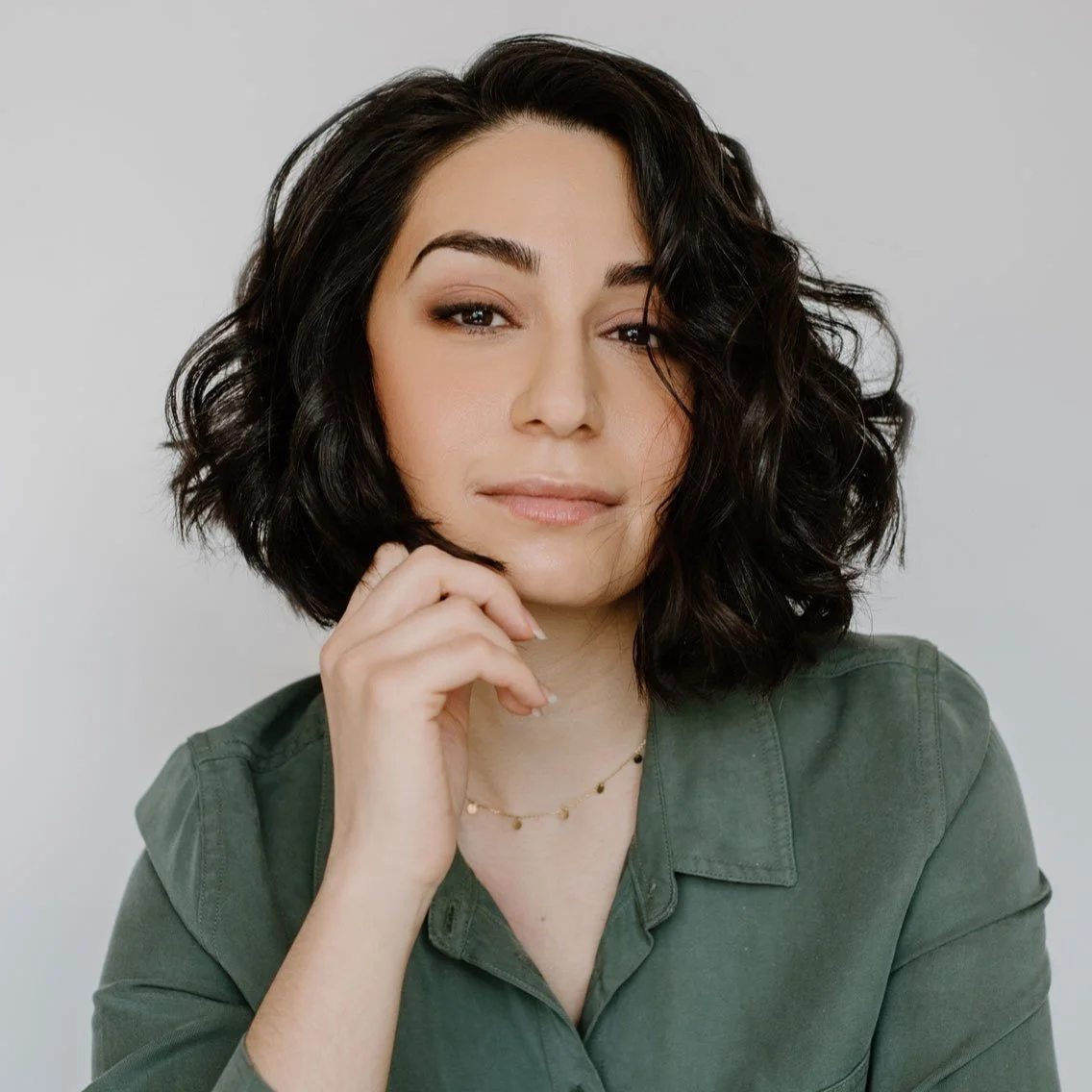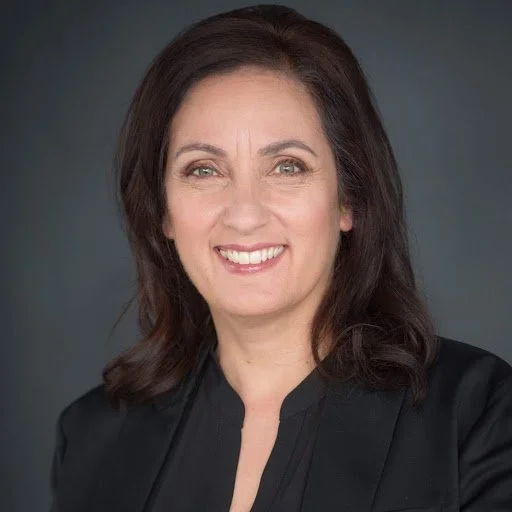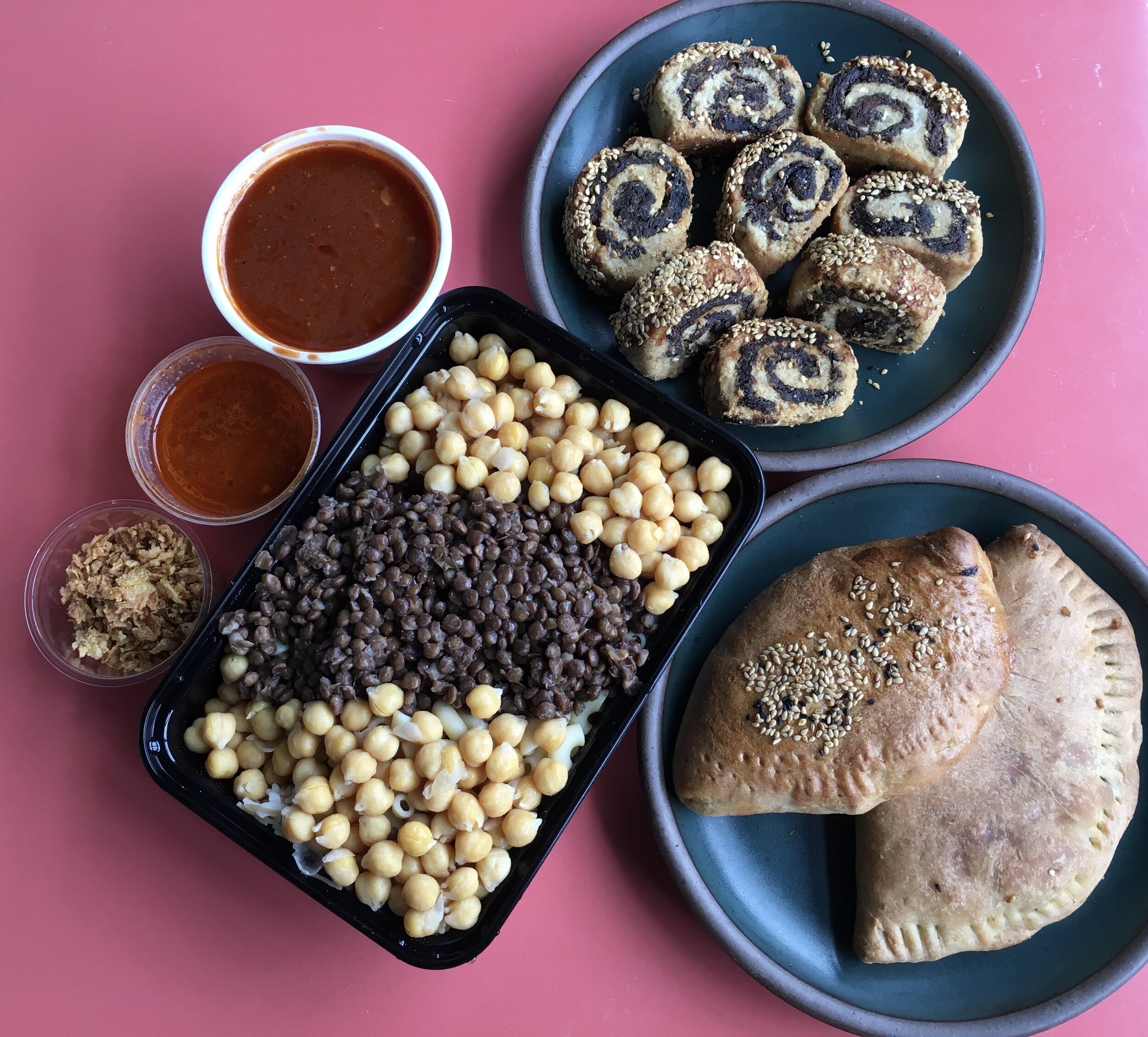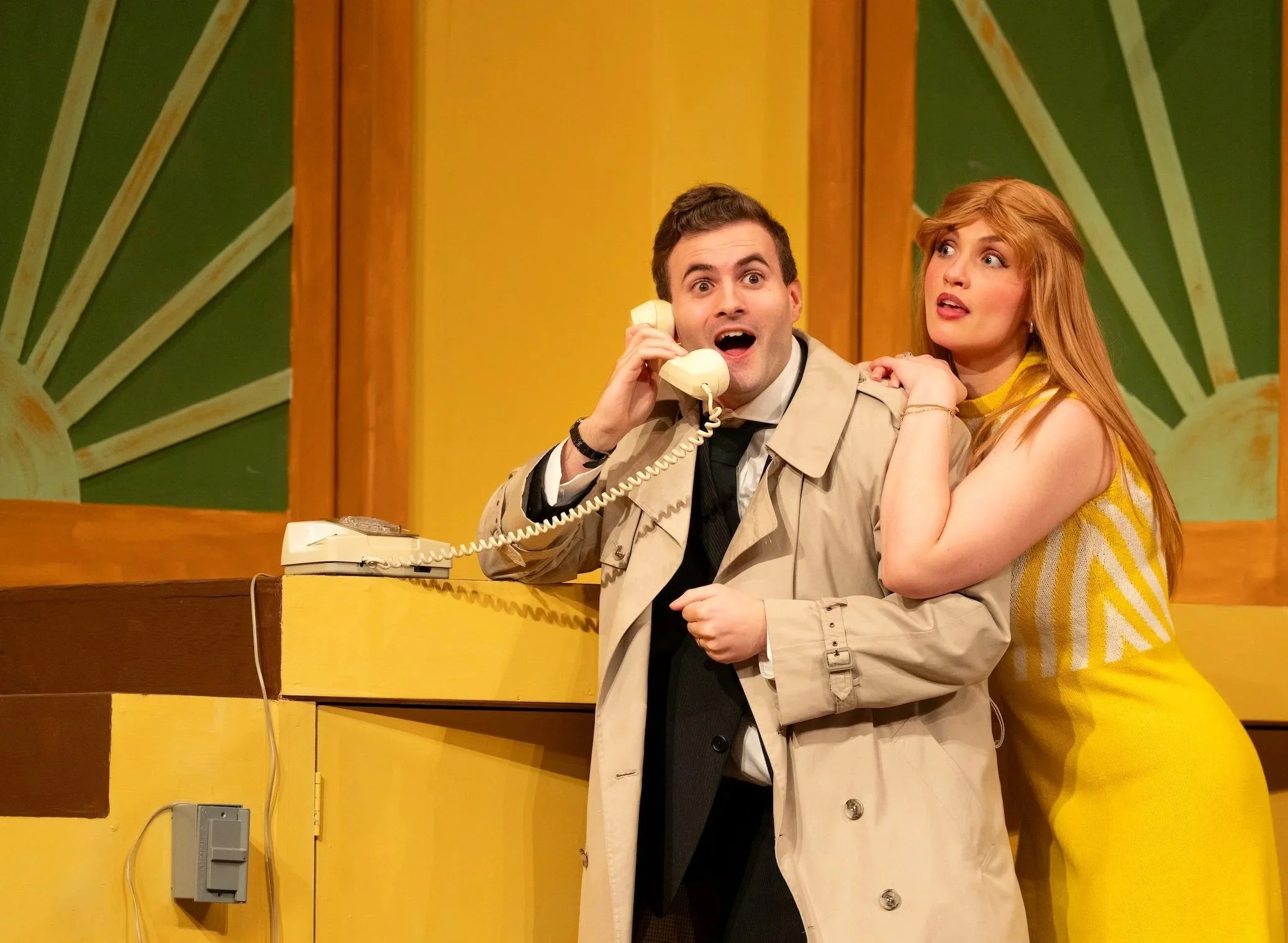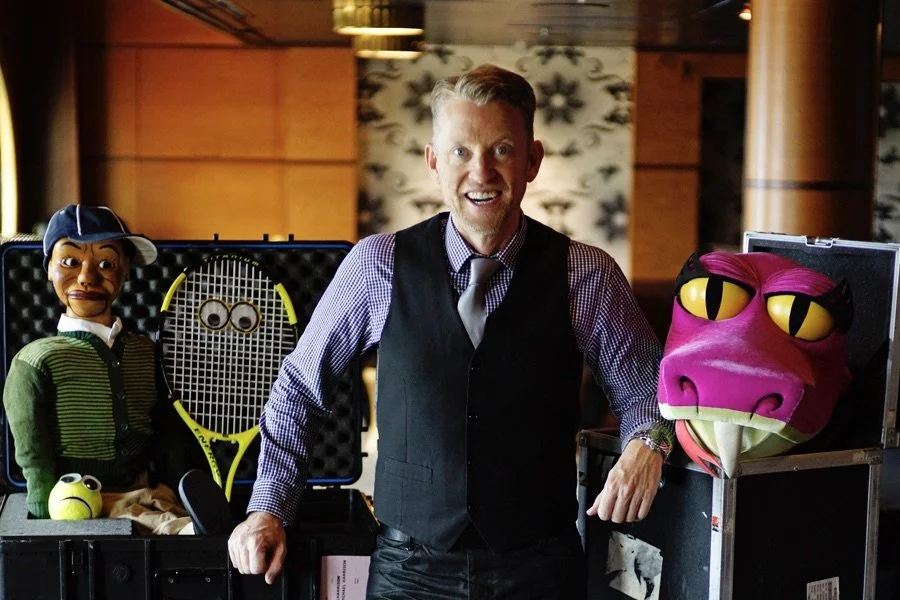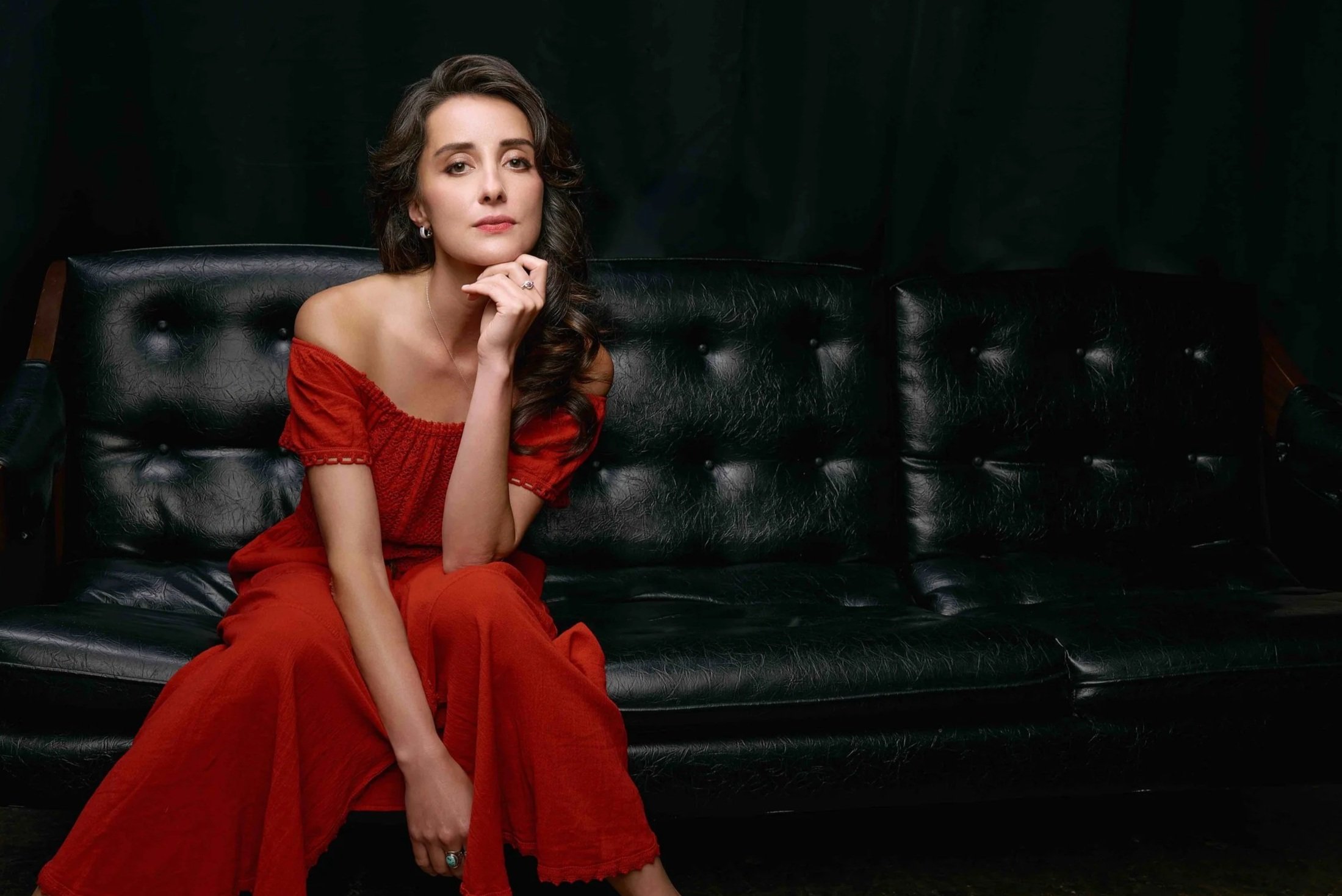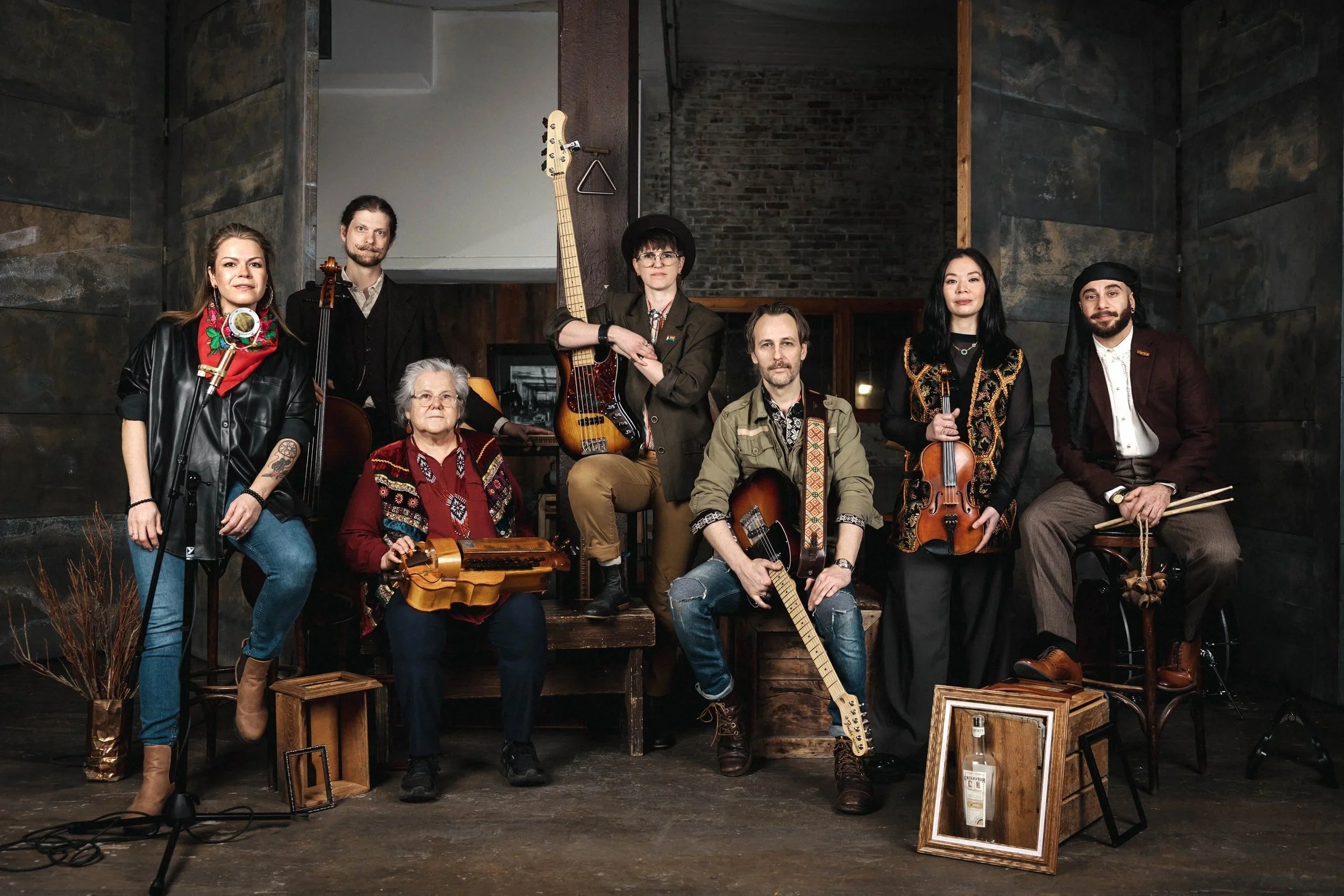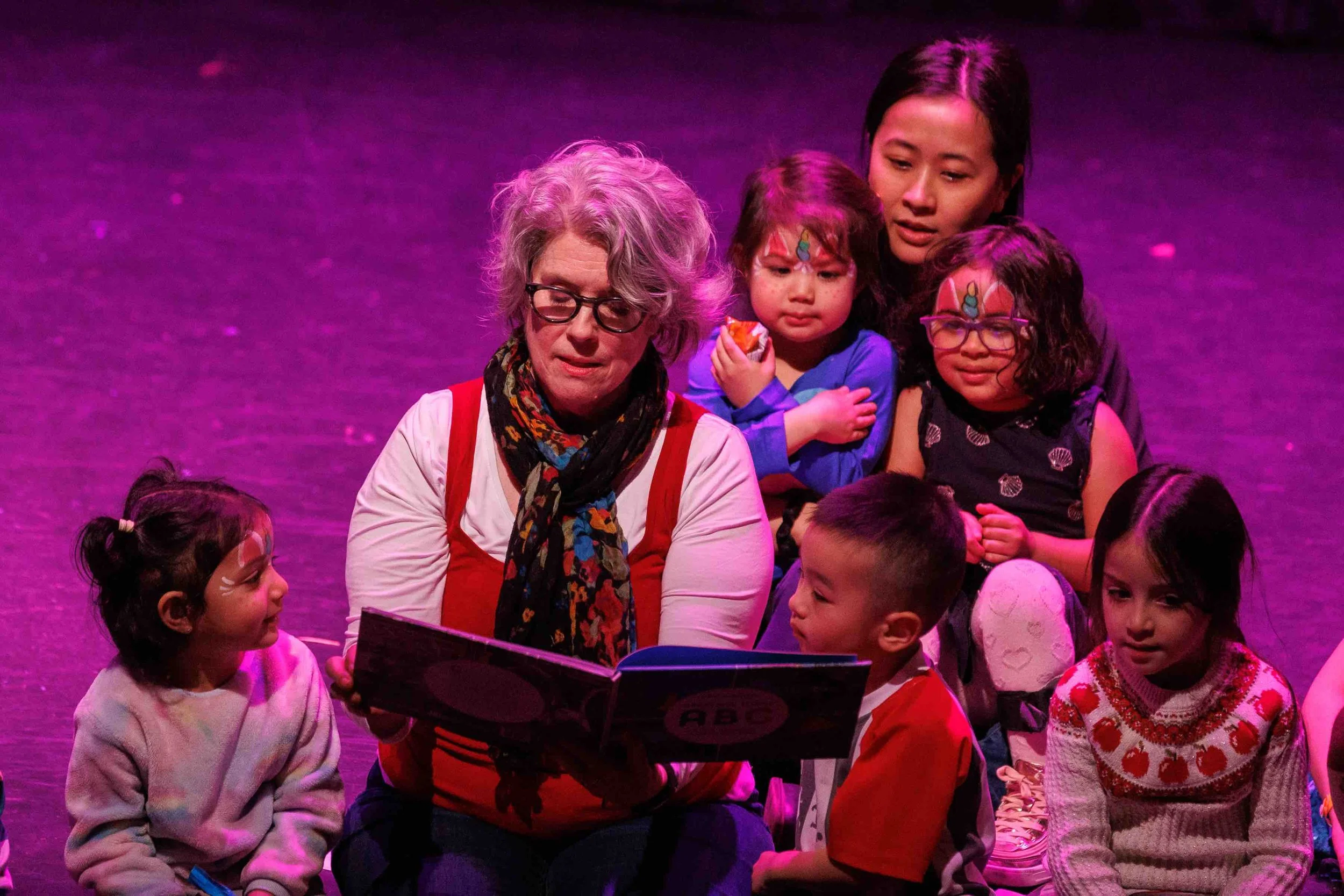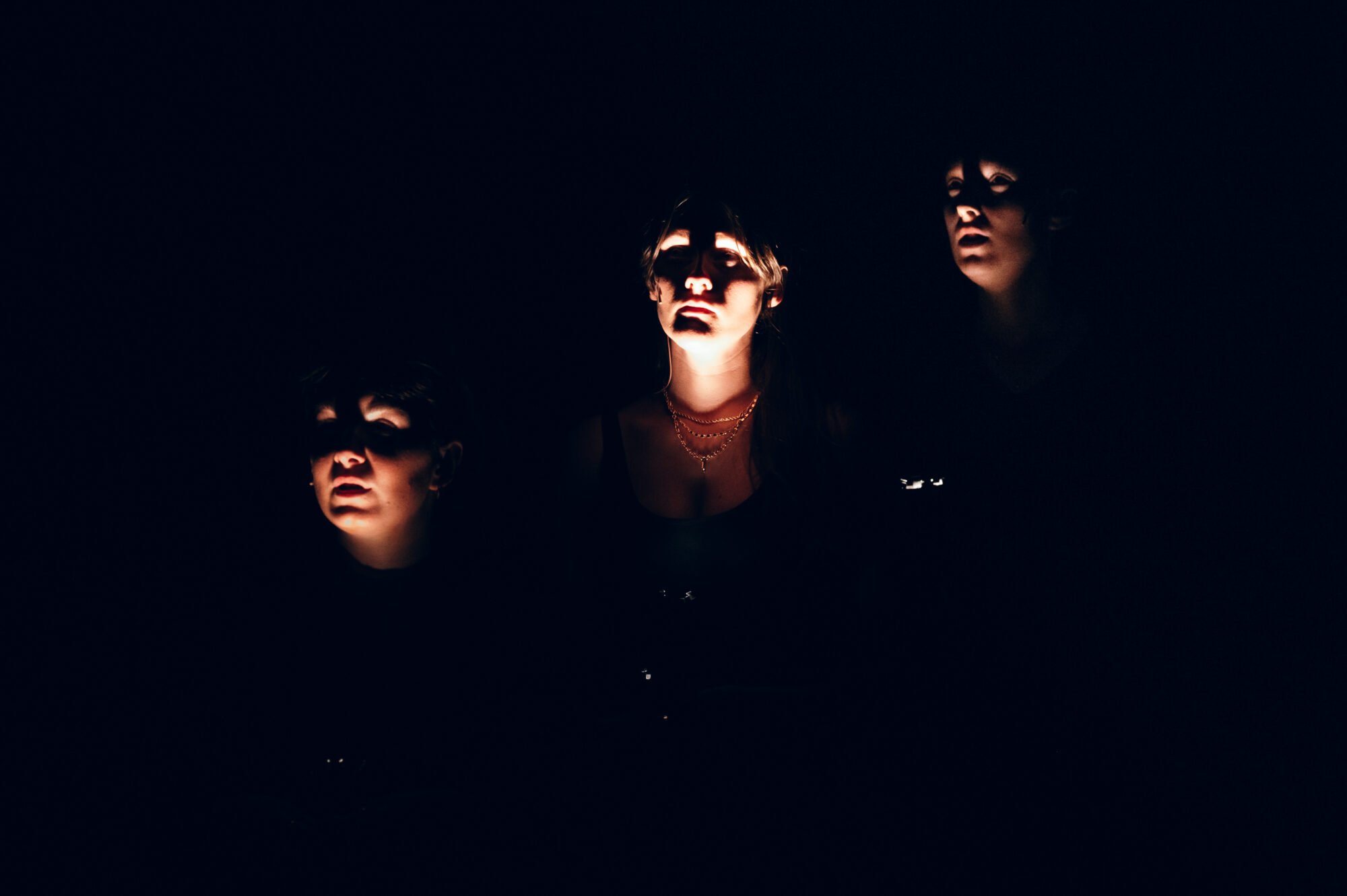A Cultural Celebration MENAT Style! mixes together storytelling, music, and food
Medusa Theatre team crafted monologues out of real memories from immigrants from the Middle East, North Africa, and Turkey
Katelin Coleman and Sarvin Esmaeili in rehearsals for A Cultural Celebration MENAT Style!. Photo by Dhirendra
Morgan Zentner, Mehdi Darvish, and Katelin Coleman in rehearsals for A Cultural Celebration MENAT Style!. Photo by Dhirendra
Rumble Theatre presents Medusa Theatre’s A Cultural Celebration MENAT Style!, live at Progress Lab 1422 on May 20 and 21
THEATRE ARTIST PANTHEA VATANDOOST has fond memories of evenings growing up in an Iranian household. “In my culture, everyone eats late, around 9 pm,” the founder and managing artistic director of Medusa Theatre says, “and then everybody sits around, and you bring the tea, and you bring the sweets, and someone starts playing instruments, and then the kids usually listen to the adults tell stories.”
That warm experience that crosses Middle Eastern, North African, and Turkish (“MENAT”) cultures is exactly what she and artistic producer Peri Allan are trying to evoke with A Cultural Celebration MENAT Style!. The unique evening mixes monologues drawn from true-life stories from those regions with mesmerizing live music, and traditional food.
“If we were going to provide a space not only for our own folks to share their joy, but also inviting folks from Vancouver who are not from our community to share in the joy with us, I felt that it wouldn’t be a holistic event or portrayal if it didn’t have food and music,” Vatandoost says, sharing a call with Allan. “They're just so intertwined and so reliant on each other.”
“There is nothing that brings people together more than music and food,” adds Allan, whose roots are Turkish-Cypriot. “Food is not the be-all and end-all, but food makes for warmth and welcoming.”
Crafting the unique theatre show over the last year and a half has been a labour of love for the pair. Their process started by putting a call out to local members of the MENAT immigrant and refugee community, far outside the arts scene, for stories of their favourite memories from home.
“The impetus and idea behind it was knowing where I’m from and all the stories I grew up with, and just rarely really getting the opportunity to see those in the arts,” says Vatandoost. “I’m Iranian, and 90 percent of work that is about Iranian women is about the struggle with the headscarf or a sexual awakening or whatever. So I really wanted to see that sense of storytelling that's a part of our culture but also just so fun—to share funny, entertaining stories and not have to participate in sharing trauma like that.”
Vatandoost and Allan then spent the following months following up with four of the people who contributed stories, gathering the details of their memories through interviews. It was a deeply affecting and enjoyable experience for the theatre artists devoted to giving a platform for diverse voices.
Panthea Vatandoost
Peri Allan
“It was just the sheer delight of people’s eyes lighting up to share their stories and the fact that somebody asked them to do that,” says Allan. “We’re labelled a lot of the time as being war-wearied or oppressive or abused; we’re so much more than that!”
Vatandoost adds they were struck by how every single story submitted drew from childhood, and related to either a parent or grandparent. It reminded the pair of how integral family and closeknit community are to the cultures of the Middle East, North Africa, and Turkey.
And yet each story differs greatly from one another. Vatandoost connected instantly to a tale by one Syrian storyteller about how, at nine years old, he became the first person in his community to get an Atari video game—and suddenly became king of the neighbourhood.
The musical team—a mix of Western and Persian instrumentalists—has created original songs for each tale. Musical director Katelin Coleman, on bassoon, plays live with Bardia Sadeghi on tombak, kouzeh, and cajon; Morgan Zentner on oboe; and Saina Khaledi on santoor.
That cultural mix was integral to the Medusa team’s vision.
“We at Medusa are very wary that we’re not creating a bubble–that we’re not creating art just from our artists or just for our audiences,” Vatandoost stresses. “We want collaboration without assimilation. And that’s something we tried out with the music.”
After the accompanied monologues by performers Vatandoost, Lara Aysal, Mehdi Darvish, and Sarvin Esmaeili, the team will roll out free Egyptian food catered by Huda Abd Elhamid’s Super Dishes, supported through Flavours of Hope (a nonprofit social enterprise devoting to supporting new refugee and immigrant women build a life here through cooking and entrepreneurship).
For Western audiences, food may be the most unique and unexpected part of this evening of theatre, music, and storytelling. But it adds the secret spice to the celebratory event. As Allan puts it: “Food makes for warmth and welcoming.”
Food also happens to offer what is perhaps the best metaphor for the way the MENAT cultures both intersect and diverge—each with its own distinct languages, world views, religions, and traditions that reach back to ancient times.
“A lot of us use the same ingredients in our food,” says Vatandoost, “but none of it tastes the same.”
A sampling of the Egyptian cuisine made by Huda Abd Elhamid’s Super Dishes.


